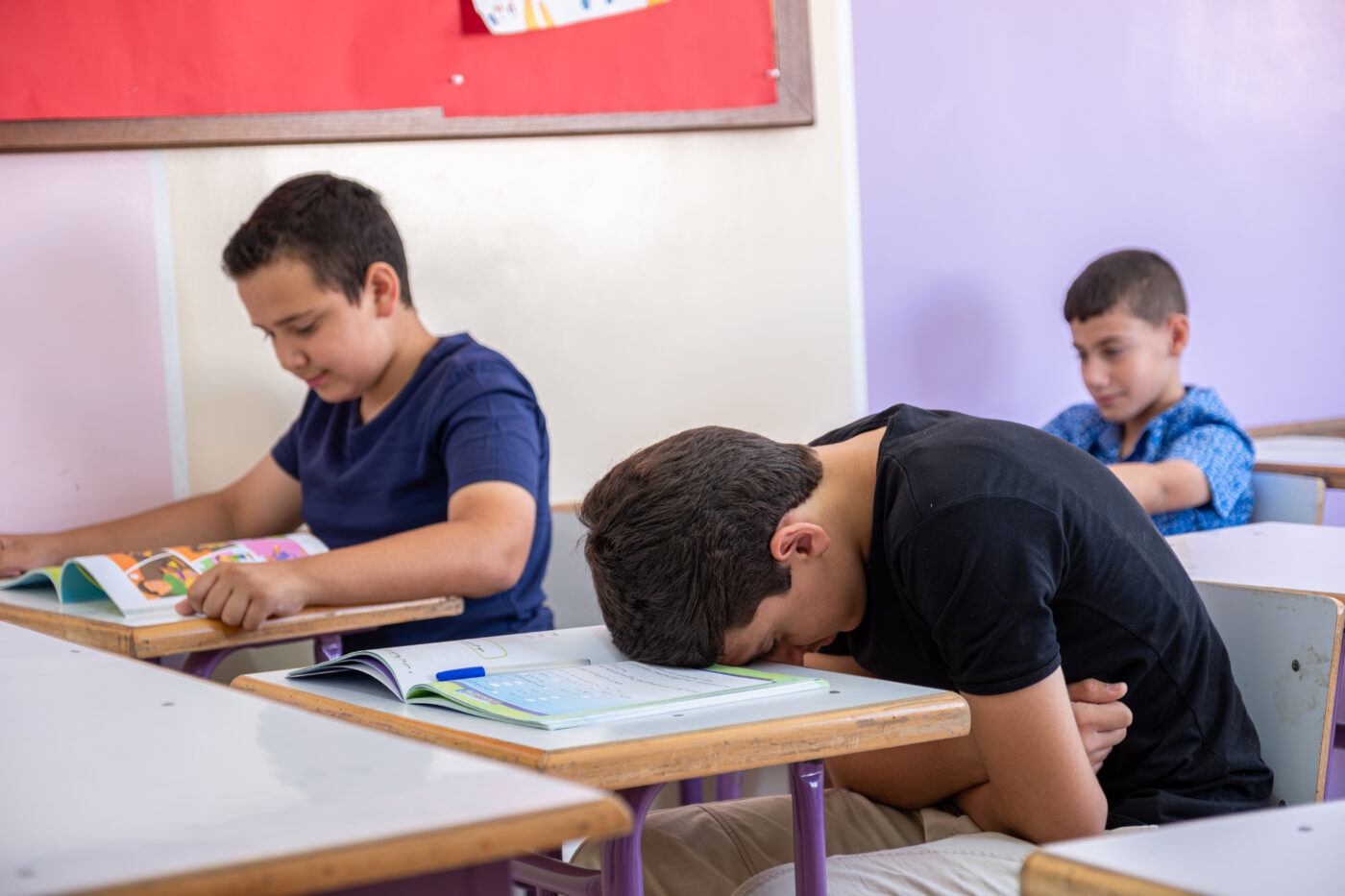“This will probably be my last year.” I heard a teacher say that recently. The reason? Student behavior. It has pushed her to the limit, and she feels like she needs a break. Another longtime teacher said, “I used to worry about a few kids. Now there’s just a few kids I’m not worried about.” Kids are spitting, throwing furniture, attacking other students, and attacking teachers. One teacher even had scissors thrown at her face.
Are these isolated stories, or is there a trend happening? And if it’s a widespread and ongoing problem, what do we do about it? Let’s try to answer this question: Is student behavior getting worse?
Is student behavior getting worse?
Studies indicate that student behavior is in fact getting worse. A survey this year by the EdWeek Research Center revealed that close to half (48%) of teachers believe that student behavior is a lot worse now than before the pandemic. That’s up from the year before when a third of teachers said student behavior was worse than it was pre-pandemic. Meanwhile, another 24% of teachers said behavior was a little worse now compared to before COVID. That means 72% of teachers report that behavior is getting worse.
Why is it happening?
There are a number of factors that play into child behavior. More than anything, experts cite that mental health has suffered since the pandemic with anxiety and depression levels significantly climbing. As the publication Pediatric Research noted, “There has been an increase in children with developmental delays, learning disabilities, and behavioral disorders that may be a sequela of multiple changed experiences during the early years of the COVID-19 pandemic for a child who may have already had some underlying risk.” The anxiety levels were pretty high in 2019 due to political unrest and school shootings. The pandemic turned up the heat with isolation and instability. With all of that bottled inside, kids are lashing out.
What do students need?
Us. They need their dads. As the Institute for Research on Poverty cites, “In numerous studies, positive father involvement is associated with children’s higher academic achievement; greater school readiness; stronger math and verbal skills; greater emotional security; higher self-esteem; fewer behavioral problems; and greater social competence than found among children who do not have caring, involved fathers.”
Kids’ behavior is the parents’ problem to solve, not the school’s. Proverbs 22:6 encourages parents: “Train up a child in the way he should go: and when he is old, he will not depart from it.” As dads, we need to take the lead in engaging our kids, not just their behavior but the things below the surface that are causing them to lash out. Spend time with your kids talking to them about their anxiety levels. Listen, show empathy, and give them a sense of hope and optimism. Make healthy decisions for them like keeping sleep schedules, limiting screen time, and eating right.
Also, help them develop coping mechanisms to help them control their emotions, deal with stress, and manage behavior. Coping mechanisms such as breathing slowly to calm down, exercising or getting plenty of movement can help. Let them know what behavior is acceptable and what is unacceptable. You may need to plan with the teachers to figure out the best ways to proceed in class. If the problems run deeper, you may need to involve a professional therapist.
Another practical step is to be a part of an All Pro Dad chapter. All Pro Dad chapters meet once a month, typically for breakfast at a child’s school. When dads are involved in school, there are many benefits. Check out this video for more info.
https://www.youtube.com/watch?v=rlKN6t0JTuk
Check to see if there is an All Pro Dad chapter in your area or look into what it takes to start one. The more engaged fathers we have, then with regard to this issue, the fewer problems we’ll see.
Sound off: What are some other things we can do to improve student behavior?









Huddle up with your kids and ask, “What is causing the most anxiety for your classmates right now? What about you?”